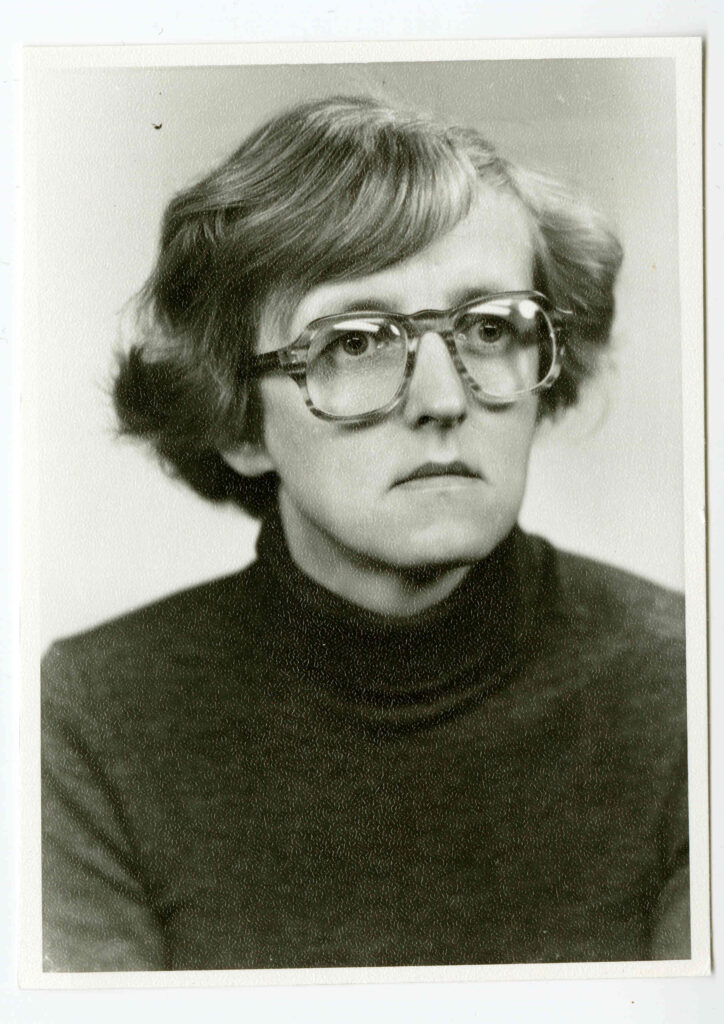
Astrid Reinla

Poems
Short stories
Astrid Reinla (real name Astrid Kabur, 1 March 1948 – 1 January 1995) was an Estonian writer.
She was born in Tallinn as the daughter of the literary scholar Oskar Kuningas. She studied at Tallinn secondary schools no. 29 (1955–1961) and 7 (1961–1966) and at Tartu State University (1969–1974) from where she graduated as an Estonian philologist. She worked as a bibliographer at the State Library of the Estonian SSR (1966–1969, the present National Library of Estonia), as a proofreader at the Eesti Raamat publishing house (1974–1976) and as language editor and proofreader of the magazine Horisont (1976–1979). From 1979, she was a freelance writer. She joined the Estonian Writers Union in 1990. In 1971, she married writer Boris Kabur.
Reinla’s first piece of writing was published in a periodical in 1969. The most fertile creative period in her less than 50 years of life fell into the 1980s when she published collections of both poetry and short stories but also children’s books and plays. The latter include, e.g., Naeris naeris (‘The Turnip Laughed’, 1984), which was staged at the Estonian Puppet Theatre, and Koduabiline (‘Domestic Helper’, 1986) which was staged at the Ugala Theatre.
Although Reinla’s creation had an essential role in her time, and critic Aivar Kull has called her “a balancing, reconciliating force that mitigated tensions in that time’s cultural life”, today she is best known as a children’s writer. Several generations have grown up with her mythological character Pätu (1988) whom no one has seen, but who can be made responsible for any mischief that has happened at home. In 1990 the book was screened as a television play; an audio cassette with Pätu’s songs was also released. The painfully realistic story about the forsaken cat Teofrastus (1985), which reflects the value judgements and sore points of that time’s society, may have inspired several younger writers’ children’s books about cats and given a new dimension to the local identity of the Mustamäe district in Tallinn and the South Estonian village Peedu. Teofrastus was made into a puppet film as late as in 2018, which proves the strong impact the book had on children when was published, and how it continues to live on in their memories. Teofrastus has been translated into German and English (both 1989).
Many Estonians remember Reinla even now as the author of the idea and the first scriptwriter of the popular television series Õnne 13 (Meie elu lood) (‘13 Õnne Street (The Stories of Our Life)’). Although the scriptwriters of the series initiated by her in 1993 have changed for several times, being always well-known Estonian writers, the series is still popular and has continued uninterruptedly for several decades. In 1995, Reinla posthumously received the Literature Endowment Annual Award for Õnne 13.
Reinla has translated the collection of science-fiction stories by the Russian writer Andrei Balabukha Eelkäijad (‘Forerunners’, 1978), Ella Fonyakova’s story for young adults Tolle talve leib (‘The Bread of That Winter’, 1979), Teekond teise ilma ehk suur palverännak (‘Journey into the Other World or Great Pilgrimage’, 1980) by the Tajik writer Fazlidin Mukhamadiev and Helen Keller’s novel Minu elu lugu (‘The Story of My Life’, 1995).
M. K. (Translated by I. A.)
Books in Estonian
Poems
Kiilasjää. Tallinn: ENSV Riiklik Kunstiinstituut, 1973, 31 lk [kunstitudengi koolitöö, mida trükiti 20 eksemplari].
Lihtminevik. Tallinn: Eesti Raamat, 1982, 51 lk.
Children’s literature
Teofrastus. Tallinn: Eesti Raamat, 1985, 48 lk. [2. trükk: Tallinn: TEA Kirjastus, 2010, 72 lk; 3. trükk: Tallinn: Tänapäev, 2018, 89 lk.]
Pätu. Tallinn: Eesti Raamat, 1988, 40 lk. [2. trükk: Tallinn: Avita, 2000, 48 lk; 3. trükk: Tallinn: Tänapäev, 2000, 40 lk; 4. trükk: Tallinn, Avita, 2008, 48 lk.]
Miikael. Tallinn: Eesti Raamat, 1989, 143 lk.
Pätu laulud. Tallinn: Sünnimaa, 1992, 33 lk.
Lumeelevant. Krooksjalad. Tallinn: Kupar, 1994, 224 lk. [‘Lumeelevandi’ 2. trükk: Tallinn: TEA Kirjastus, 2012, 88 lk.]
Short stories
Inimestega. Tallinn: Eesti Raamat, 1982, 128 lk.
Plekk-katus. Tallinn: Eesti Raamat, 1987, 192 lk.
Kodanik on loll. Tallinn: Tuum, 1994, 96 lk.


